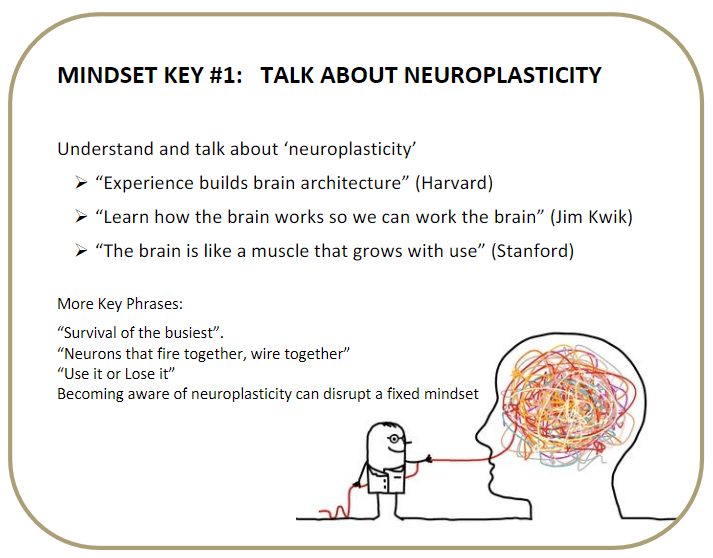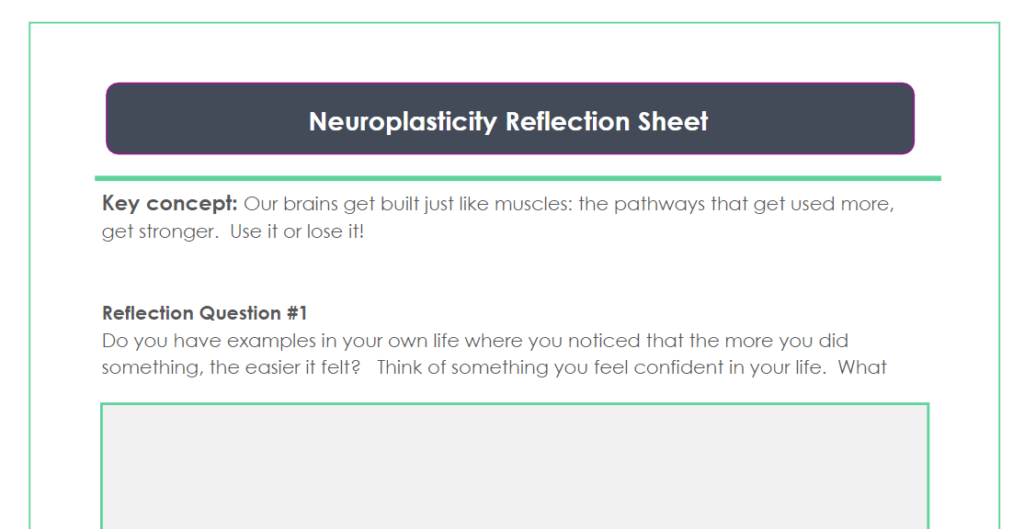Growth Mindset and Neuroplasticity
In all honesty, when I was teaching students, teachers and business leaders about the mechanics of the mind and how to re-wire pathways, I NEVER used (or even heard of) the word ‘Growth Mindset’. I never needed to because when people understand the principals of ‘brain-building’, they don’t need a buzz word… it just is.
The brain just is plastic, malleable. That’s its nature. It gets molded according to our experiences
AND… we can have some control over how it continues to develop by choosing what we do with it more often.
In my decade of experience teaching this, the above diagram of X’s and dashes has helped people see how learning happens – and that we ‘learn’ not just subjects in school, but we also learn how to react, we learn how to judge a person or a situation based on how the people around us have done it.
So what I like to say is BEFORE… or alongside using the word ‘growth mindset’, you can simply talk about the actual reality of the brain… that it develops depending on how it gets used and what it gets exposed to.
The useful part about using the word ‘growth mindset’ is that it’s an anchor for people now because it’s such a popular word.
So that’s how and why I use the term – it’s a really helpful way to encompass the idea of building brain architecture, and a great way to start a conversation if someone hasn’t heard about it.
Step 1) Watch the video
Step 2) Download and answer the reflection questions. You can also use this to hand out to your audience.
Step 3) Download the additional materials to use for your own reference or to build your own workshop
[tab:EXTRA RESOURCES]
Download the Step 1 – Neuroplasticity Handout
Sentences you can use:
“The more you use a brain pathway, the stronger and faster it gets.”
“Your brain is plastic.”
“You can shape your own brain”
“You can evolve your own brain”
“The brain is like a muscle that grows according to how you use it” – this is similar to Carol Dweck’s phrasing used in various research studies.
A great video you can show to start off the month is this one by Sentis:
I have used this both for organizational staff development as well as for a science camp for 3rd-to-5th graders and 6-8th graders and university students.
Another video you can show either at the beginning or mid-way through the month is this one by the Harvard Center for the Developing Child. Even if your job or your staff is not with children, this is still an important video as it highlights how much we are affected by our earliest experiences.
That means that whoever you are dealing with – an employee, a client, a boss, a student – their early experiences impacted their brain architecture and may have led to less developing of certain areas.
[tab:REFLECTION QUESTIONS]
Reflection Questions
Download the Reflection Questions
That’s it for Unit 1! Next up: Unit 3 – Celebrating Mistakes
Unit 2

